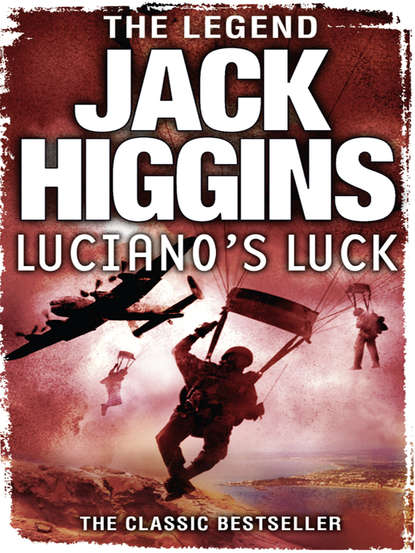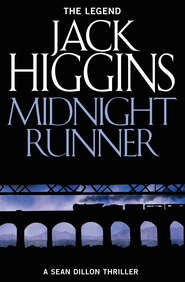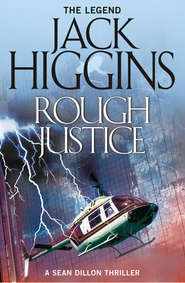По всем вопросам обращайтесь на: info@litportal.ru
(©) 2003-2024.
✖
Luciano’s Luck
Автор
Год написания книги
2018
Настройки чтения
Размер шрифта
Высота строк
Поля
And so, the Mafia card was played and played to . . .
About the Author
Other Books by Jack Higgins
Copyright
About the Publisher
PUBLISHER’S NOTE
LUCIANO’S LUCK was first published in the UK by William Collins Sons & Co. Ltd in 1981 and later by Signet Books. This incredible novel has been out of print for some years, and in 2011, it seemed to the author and his publishers that it was a pity to leave such a good story languishing on his shelves. So we are delighted to be able to bring back LUCIANO’S LUCK for the pleasure of the vast majority of us who never had a chance to read the earlier editions.
FOREWORD
The Mafia, the Honoured Society, has always fascinated me. I first wrote about it in an earlier book, In the Hour before Midnight, and during the research came across the career of Charles ‘Lucky’ Luciano, the famous American gangster. The legend that he was taken out of prison by American Intelligence and dropped into Sicily to prepare the way for the Allied invasion had been around for years, but was not taken seriously by most people. However, when I visited Sicily to do essential research for In the Hour Before Midnight, I actually met people who insisted that they had seen Luciano on the island before and during the invasion. It was enough for me. I stored the information until a more suitable time and so Luciano’s Luck was born.
SICILY—1943
In July 1943, American forces landed on the southern coast of Sicily and in an advance of incredible rapidity, reached Palermo in only seven days. That their success was due in no small measure to the co-operation of the Sicilian Mafia acting under the direct orders of Charles Lucky Luciano, then serving a sentence of thirty to fifty years in Great Meadow Penitentiary in New York State, is a matter of historical fact. What is particularly fascinating about this strange episode is that in Sicily to this day, there are those who insist that they saw Luciano in person with the American units during the early part of the invasion …
1
It was just before evening, when the jeep carrying Harry Carter turned in through the gates of the great Moorish villa called dar el Ouad outside Algiers, and braked to a halt at the ornate, arched entrance.
‘Wait for me,’ Carter told the driver and went up the steps past the sentries.
In the cool, dark hall inside, a young captain in summer uniform sat at a desk working on some papers. The plaque in front of him said, Captain George Cusak. He glanced up at Carter, noted the uniform, the crowns on his shoulder, the purple and white ribbon of the Military Cross with a silver rosette for a second award, and stood up.
‘What can I do for you, Major?’
Carter produced his pass. ‘I think you’ll find General Eisenhower is expecting me.’
The captain examined the pass briefly and nodded. ‘Ten minutes to go, Major. If you’ll take a seat, I’ll tell him you’re here.’
Harry Carter walked out on to the terrace through the open french windows and sat down in one of the wickerwork chairs. After a moment’s hesitation he took out an old silver case from his breast pocket and selected a cigarette.
He was forty-two, of medium height, a handsome man with a calm, pleasant face which always seemed about to break into a smile, but never quite made it. And he suited the uniform to perfection which was surprising for he was the second son of a prosperous Yorkshire mill-owner, a scholar by nature, educated at Leeds Grammar School until thirteen and then Winchester. From there he had absconded in 1917, joining the Army under a false age, serving the last eighteen months of the First World War as an infantry private on the Western Front.
Afterwards came Cambridge and a brilliant academic career which had included spells at Harvard as visiting Professor of Greek Archaeology, the University of Florence and then a return to Cambridge as a Fellow of Trinity and Claverhouse Professor of Ancient History at thirty-five.
Just after Munich, he had been approached by British Intelligence and had worked with Master-man at MI5, helping to destroy the German spy network in England. He then moved to Special Operations Executive, eventually transferring to Cairo to take responsibility for the Italian section. Sicily had come later, had never really been on the cards at all.
And it was beginning to show; in the weariness in the grey eyes, the flecks of silver in the dark hair. He flicked what remained of his cigarette out into the garden.
‘Careful, Harry,’ he said softly. ‘Next thing, you’ll be starting to feel sorry for yourself.’
There was a movement behind him and he glanced up as Captain Cusak appeared.
‘Major Carter, General Eisenhower will see you now, sir.’
The room was as ornate and Moorish in its furnishing as was the rest of the villa. The only signs that it was the nerve centre of the headquarters of the Supreme Allied Commander for the North African Theatre were to be found in the maps of the Mediterranean pinned to one wall and the three trestle tables covered with more maps, which had been placed by the terrace windows to serve as a desk.
Eisenhower was standing outside on the terrace as they went in, smoking a cigarette, wearing boots and riding breeches for he rode most afternoons. He turned and walked in briskly, his face illuminated by that famous and inimitable smile.
‘Coffee, George,’ he said to Cusak. ‘Or maybe Major Carter would prefer tea?’
‘No, coffee would be fine, sir.’
Cusak went out and Eisenhower indicated a chair and opened a file on his desk.
‘And just how does a man with your background get by as a Sicilian peasant?’
‘Oh, you can thank the University Dramatic Society for that, General. There was a wild moment there when I was tempted to turn professional.’
‘You were that good.’
‘I wouldn’t be here if I wasn’t, sir,’ Carter said calmly.
‘When SOE sent you out to Cairo to take charge of the Italian section I don’t think they envisaged your personal invasion of Sicily on…’ here he glanced again at the file, ‘…three separate occasions?’
‘I know, sir,’ Carter said. ‘But we didn’t really have any choice. When it came to Sicily, there wasn’t anyone else who knew the language or the people as well. I did a lot of work on archaeological digs there during the thirties.’
‘And now you’re going in again. Don’t you think you’re getting a little old for this sort of thing?’
Eisenhower pushed a document across the desk and Carter picked it up. It was a typical SOE operation order in sparse, no-nonsense Civil Service English.
OPERATION INSTRUCTION NO. 592
For Major Harry Carter
Operation: Swordarm
Field Name: FORTUNATO
Name on Papers: Giovanni Ciccio
1 INFORMATION
We have discussed with you the possibility of your returning to Sicily to finalize the mission you were originally given when you left for that island in February of this year; namely, to co-ordinate the organization of resistance groups in the general area of the Cammarata so that the maximum co-operation is available to Allied troops in the event of invasion. You have made it quite clear that in your view, nothing prevents you from returning to the same area to carry out this task.
2 METHOD
From Maison Blanche you will proceed to Sicily in a Halifax of 138 (Special Duties) Squadron and will land by parachute at a point 10 kilometres west of Bellona where you will be received by elements of the local resistance movement. You have been given a cover story and papers in the name of Giovanni Ciccio which will enable you to live a normal life in the field.
INTERCOMMUNICATIONS
Your channel of communication with the resistance movement in the Palermo area will be through the Contessa di Bellona who is at the present time in residence at her villa outside that town.











